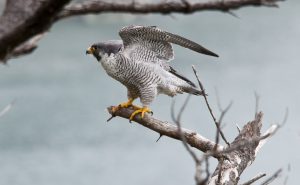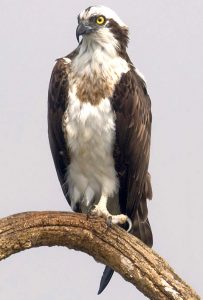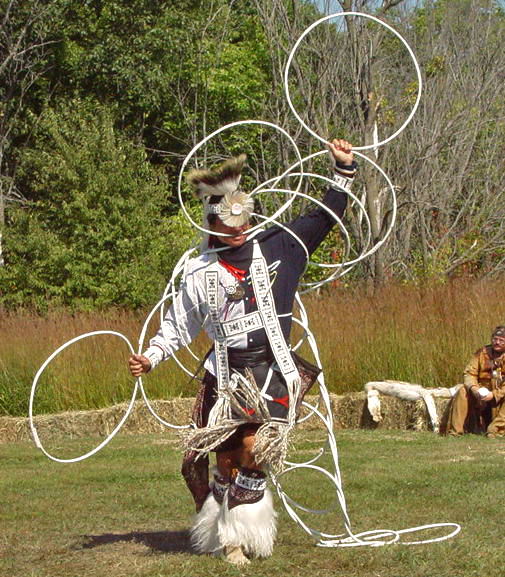
Photo: Chris Adkins- Environmental Education Coordinator / Dallas County Conservation Board
Pat Schlarbaum is a reporter with KHOI 89.1 FM in Ames, IA. He helped produced Dallas Chief Eagle from Pine Ridge Reservation in South Dakota. Dallas Chief Eagle is very involved in the traditions of the Dakota Nation and provides inspirational teachings to youth of all nations. He is particularly honored for his counseling work in the prison systems, where many in the Dakota nation are imprisoned.
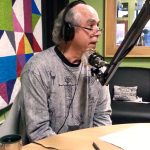 Pat is currently retired from the Iowa Department of Natural Resources Wildlife Diversity Program, and much of his work to bring back wildlife to Iowa involved communicating with indigenous people. “We need the native community. As we tried our outreach that was the one group we were leaving out for a number of years. I give them the credit, I was just kind of a go-between.”
Pat is currently retired from the Iowa Department of Natural Resources Wildlife Diversity Program, and much of his work to bring back wildlife to Iowa involved communicating with indigenous people. “We need the native community. As we tried our outreach that was the one group we were leaving out for a number of years. I give them the credit, I was just kind of a go-between.”
Prairie Awakening
Pat met Dallas Chief Eagle through their mutual friend Running Moccasins, also known as Maria Pearson, of the Yankton Sioux tribe. They were all involved with putting together a prairie awakening with the Dallas County Conservation Board in Iowa.
“A prairie awakening is an area in a nearby county that has been returned to prairie and we did everything we could to get the plants and the animals and that sort of thing established. And the one missing component we felt was the native voice and the stories. So basically brought the drum, the heartbeat of native nation, to the Raccoon River Valley, once again. And it’s really caught on, it’s notable that Dallas Chief Eagle has returned year after year, and included his daughter, so it’s great for his family and it’s great for the Iowa community.”
Wildlife Awakening
Pat has worked with Native nations in and surrounding Iowa to bring back peregrine falcons, bald eagles, ospreys, and prairie chickens. These are prairie animals that once resided in the state and surrounding area, but have either had decreasing populations or been run out due to early European settlement.
“The philosophy was if they saw [ospreys] flying away with a fish, well the best thing to do would be to shoot the ospreys and then there’d be more fish. It was a misguide sense of management. They were kind of dominating the environment and treated everything that was water loving like an enemy. To get rid of the water and anything that went along with it, including river otters and bald eagles.”
The Ho-Chunk tribe, formerly known as Winnebago, were instrumental in welcoming the work of the Iowa DNR with peregrine falcon releases on sacred land in northeastern Iowa. Later, the Wildlife Diversity Program acted on the suspicion that ospreys, a native fish hawk, nested in northwestern Iowa, despite not being any documentation on their nesting habits. While speaking with the elders of the Yankton Nation, they quickly learned of traditional stories that have been around for thousands of years.
“With our wildlife species, we knew how to do the biology of it, we knew how to bring birds and keep them alive and repopulate these sacred sites, but I wasn’t sure on how to do it in such a way that future generations would honor and respect it. In other words, we lost them once, if we bring them back let’s not ever lose them again.”
The Houma people in Louisiana had been caring for river otters, and the women of the tribe helped bring them back to Iowa. And there is currently work to bring back wet crane hire to Ottawa, Iowa with the help of the Meskwaki Nation.
“We can do the biology as the agency [and] wildlife people. I was going to turn that spiritual aspect over to them. And hopefully by weaving that in, that somebody will get it, and they’ll read about it and realize that this was pretty important and significant.”
The Take Away
Pat wants listeners to remember that indigenous people still very much exist and their knowledge is everywhere. Places like Tennessee, Kentucky, New Hampshire, or Maine aren’t necessarily thought of as having an indigenous population.
“When it comes to the presence or absence of these charismatic wildlife species, there’s indigenous knowledge. They had oral traditional stories that the European settlers had written down. There’s a chance to refresh and emphasize, not only the language and the culture, but the songs and the ceremonies.”
The work that Dallas Chief Eagle does in the prison system works to bring back the culture to the young men that end up in the prison system. “It’s all about culture and it’s all about things that give people some building stones of a foundation to be back in the community with a very constructive role.”
Pat speaks highly of Dallas Chief Eagle. “It was very enlightening to hear his stories on what he felt were priorities. Everything he does he includes his heart and soul, and it was nice to have that confirmed. In some regards maybe I’m a little like a moth to the flame, and his light is very bright.”
“We are the most altered landscape on the planet. We need to learn how to work with nature as opposed to trying to fight it, and the native community has that firmly in hand.”
Books
Here are some of the books and authors that Pat recommends.
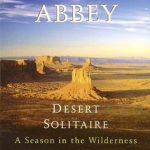
Desert Solitaire by Edward Abby
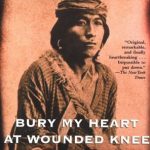
Bury My Heart at Wounded Knee by Dee Brown
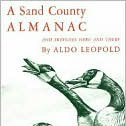
Sand County Almanac by Aldo Leopold
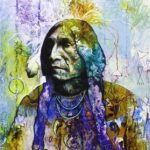
Seeker of Visions by Lame Deer
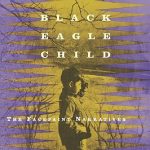
Black Eagle Child by Ray Young Bear, member of the Meskwaki Nation
Sprouts: Radio from the Grassroots
You can listen to the story of Dallas Chief Eagle, and the archive of all past Sprouts shows, here on Soundcloud. Tune in to your local, community radio station to see if they have Sprouts on their schedule. Check the map to see who’s playing Sprouts near you.
Sprouts is a weekly program that features local radio production and stories from many radio stations and local media groups around the world. It is produced in collaboration with community radio stations and independent producers across the country. The program is coordinated and distributed by Pacifica Radio and offered free of charge to all radio stations. For information, or to feature your work on Sprouts, contact Ursula Ruedenberg at ursula@pacifica.org.

